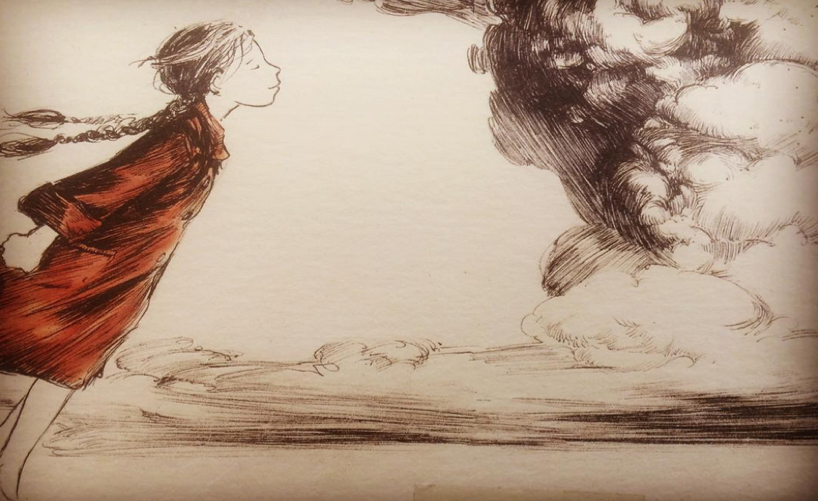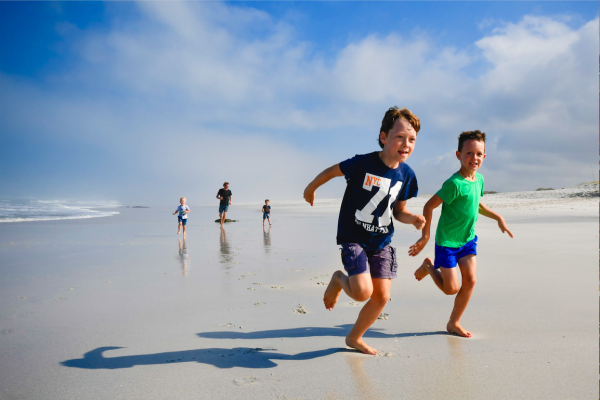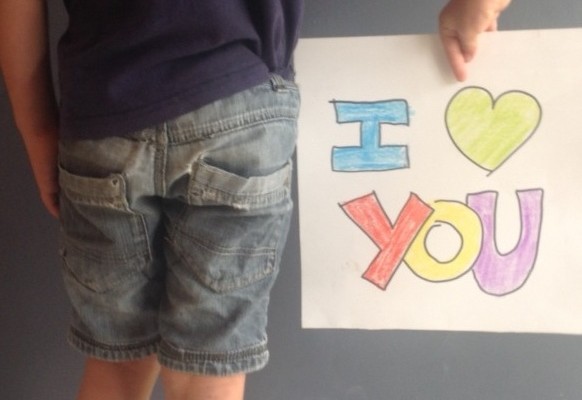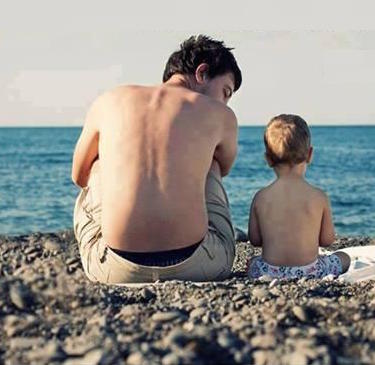
Seeds and Swords: The Power of Our Words to Our Kids
This blog about the power of a parent’s words is the third post by guest-blogger, Julie Williams, who is a professional wordsmith and the mother of my kids.
We live in a world awash with words. They gush from our mouths and spill over our fingertips onto our keyboards. They seep into our ears and eyes. And some, some sink down deep.
Despite the deluge of words we encounter, it would be remiss to mistake their abundance with inconsequence. Words are like swords, seeds, rudders and sparks. Small. Yet incomparably powerful. They hold within them the potential to build up or break down like few other things in this world. Indeed, the effect of words can live on like a legacy – well into future generations.
As an example of their power, we’re told by experts that our voice becomes our children’s inner voice. Let that sink in for a minute.
Your words are not water off a duck’s back to your kids. They are like seeds. And some will grow roots that embed in your child’s heart and soft mind until it’s almost impossible to tell where they begin and those words end. The trouble is, it’s so difficult to know which words will sink in and take root.
My gran is a fine and tragic case in point. When she was a young girl, she hid behind a couch whilst her family hosted a tea party. Just a little girl, longing to listen in on the adult conversation. I wish she hadn’t. Because what she would hear that day would sink in like a sword and leave a wound that would live on to this day.
That day, she overheard how beautiful the grown-ups thought Nancy (her younger sister) was, and what a pity that the elder sister (my gran) was “so plain and dull.”
Plain and dull.
Dull and plain.
So many other words to describe this spirited little girl who had a razor sharp mind and a fire in her chocolate brown eyes that burned right down to her lioness heart. But that day, for whatever reason, those careless words sunk into that impressionable heart and she wholly accepted they were the central, unchanging truth about her. Decades and decades later, now a beautiful and talented woman, my gran would still never receive a compliment graciously. She would flick it away as if it were a dirty lie. All the kind, encouraging, true words in the world would prove too weak to dislodge the sharp words that had stung so long ago. She died at 86 still believing those lies. And yet their impact lives on still in my mother (my gran’s only daughter). My mom is the strongest woman I know – able to graciously accept almost anything life throws at her with dignity… anything but a genuine compliment.
Consider your own life… the outlook you take on it, the words you would use to describe it and yourself… they did not simply appear there in a vacuum. They are the distillation of countless words spoken over you and to you and through you. They are word seeds that have germinated and taken root. Many of them, planted by your primary caregivers when your mind was still fallow and soft.
As a mother and as a word lover, I have become increasingly aware of the words I speak over my kids. Although I can’t protect them from the sharp words and reckless lies they’re bound to encounter, I can shower them with life-giving words while their minds are still fertile ground. I can guard my tongue and bite it instead of lashing out when life goes wrong. I can and I must. I am nowhere near perfect in this regard, but here are some of the ways I’m trying to use my mouth to be a fountain head of blessing for generations to come…
For a while, after watching The Help, I would put my daughter to bed and while I stroked her head and watched her fall asleep, I would whisper into her ear, “You are safe. And you are loved.” Again and again and again, willing these words to sink in deep, deep, deep. Willing them to take root and anchor her in a way that would make her stronger, bolder and more fearless in the years and valleys ahead. My thinking at the time, was that as a 3-year-old, the assurance of safety and unconditional love were foundational to her ability to grow in all the ways she was destined to.
Now that she is two years older, I lie beside her in her bed sometimes and try to hear what Heaven is singing over her. What her Father in heaven thinks of her and wants her to hear. I don’t focus on her outward appearance as if it were some kind of virtue, but rather on aspects of her character that shimmer with real beauty… kindness, gentleness, courage under fire. Sometimes, after brutal days in the parenting trenches, it seems to me like these attributes are hardly alive in her, but I speak them over her anyway and imagine my spoken words being like oxygen over barely-there embers… slowly, imperceptibly, breathing back to life what has almost gone out. I speak these words over her as we cuddle together. I remind her that, like the brave little girl in the picture on her bookshelf, fearlessly leaning into the storm, she is tougher than she looks, not because of her strong muscles, but because of her strong heart.
When my eldest son was smaller, he would melodramatically collapse at the slightest thing going wrong… a stubbed toe, a spilt glass of juice, a broken crayon… often blaming himself for the accident. I think we’ve told him, “It’s not the end of the world,” at least a thousand times. So many times that now, finally, I hear him saying it to himself, to his siblings and even to me, when I make a mistake and am tempted to lose it completely.
Sometimes, my words offer no comfort. The other day, I told one of my youngest boys (age 3) that his middle name (Jordan) means strong, mighty river. I was hoping he’d take courage from this, but instead, he burst into tears and berated me for putting so much water in the middle of his name. “Now all the other names are going to get wet and break!”
Any chance I get, while hugging my kids, I try to whisper something life-giving into their little ears. “I’m so glad God made you!”, “I love you so much”, “You are so welcome in this family”, “You are doing great at this growing up thing, not too fast, and not too slow, just perfectly.”
It’s not all roses though, sometimes I have to apologize for shouting out in exasperation, or saying something I later regret. In these moments, I make a point of saying sorry and getting down onto their level to do it. Even if there was a great reason for my outburst, I forbid myself from nullifying the apology with a, “but” and just take it on the chin. I have found my kids to be very gracious and forgiving.
And to keep it real, lest you think our home is a haven of life-giving words only, two of our younger kids have recently learnt how to use their words like swords… In some ways, this is an advancement from when they would use their teeth and claws to inflict pain on one another, and may in part stem from the countless times I have said, “Use your words instead when you are cross!” But now, “If you don’t do this, then I will never be your best friend/invite you to my party/eat my food,” are daily mantras and they’ve also begun to fling the word ‘hate’ into altercations with their siblings. Each time that I hear it, I tell the perpetrator to go and sit on a time out mat, and then explain again (for what seems like the 100th time) that we must be careful what words we use. You can dislike what someone is doing, but you never say you hate that someone. It’s slowly starting to sink in I think, as I heard one of them passionately declare yesterday, “I hate what you are doing Ivy!” I’m seeing this as a small step in the right direction!
For my older boys (7 and 9), sometimes words at big school flung across the playground or classroom can sting. My kids have never been the victims of chronic bullying, but still, kids can say cruel, thoughtless things to one another at times. In these moments, when they open their hearts to me and tell me about some of their struggles, I try to not be too quick to jump to their defense. I try to remind them (and me) that what Jesus said all those years ago still rings true…
“Out of the overflow of your heart, your mouth speaks.”
So when someone uses their words to inflict harm, it says far more about them than it ever does about the subject of their ridicule. It speaks of a small, hurting heart buried deep inside.
The other day, one of my boys confessed they had lashed out and said some unkind words to another boy at school. We chatted about it, and he decided to go and say sorry the next day. He came home and said the boy had said it was too late to say sorry… not the most positive outcome, but a sobering reminder to him and us all that our words are like seeds, rudders, sparks and sometimes, swords. Inflicting wounds that can live on far longer than we’d like them to.
And some final words to you, dear reader: despite the word scars and faulty inner voice inside your own heart, you can do this! It’s never too late to plant some seeds and flash less sharp swords. It’s never the wrong time to tell someone you love them, to say sorry, to tell someone that they are wonderful, or worthy, or forgiven. As powerfully destructive as our words can be, they are equally powerful to heal and raise to life what once was dead – in others and in us.
Cover Illustration: By the very talented Elise Hurst.
Comments
Also published on Medium.




